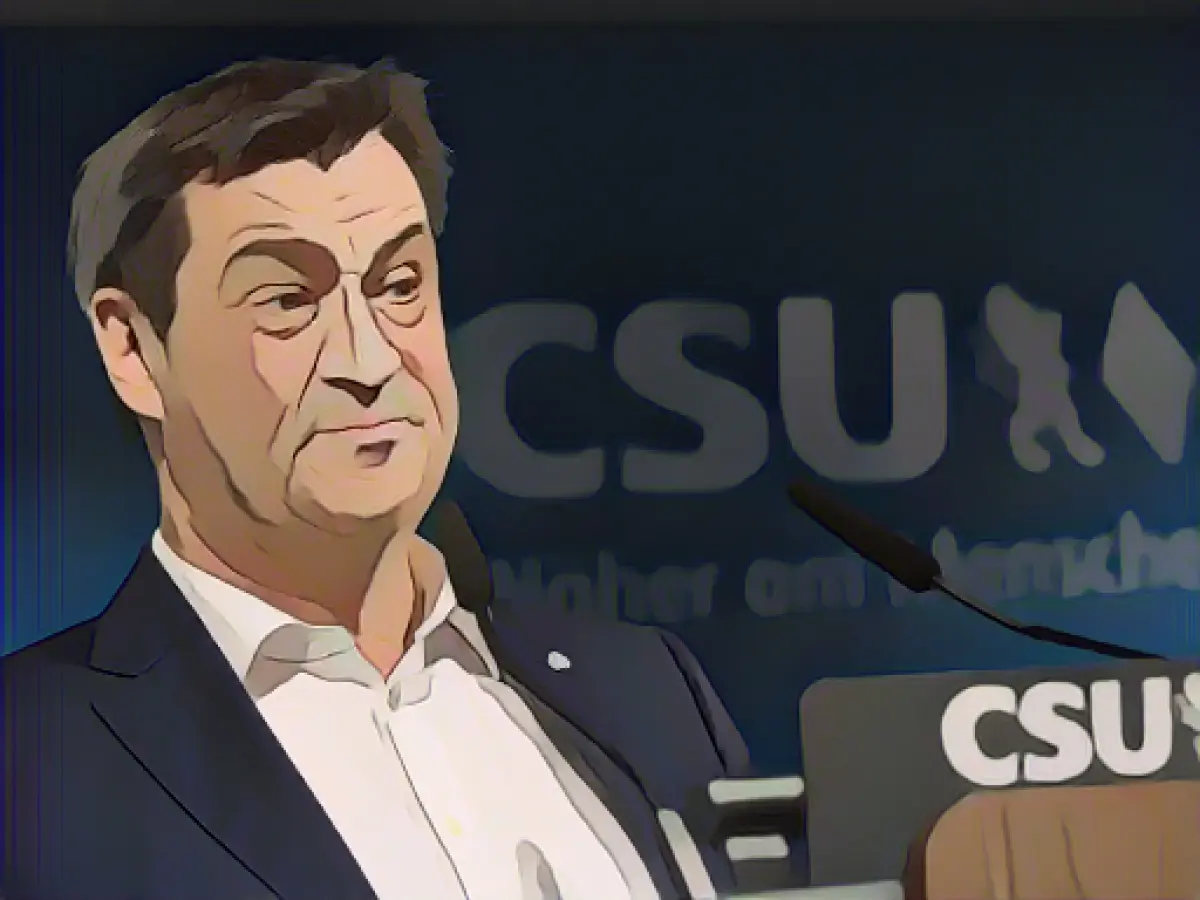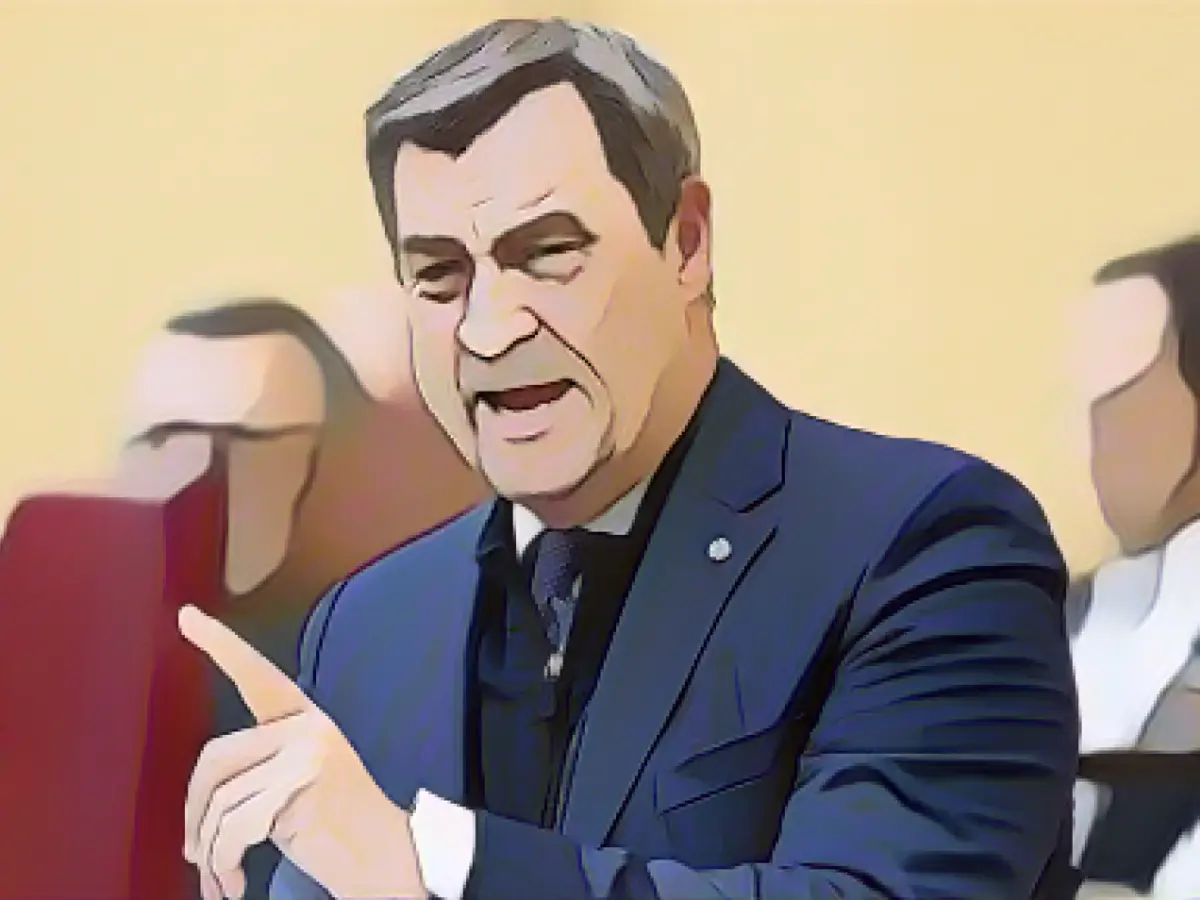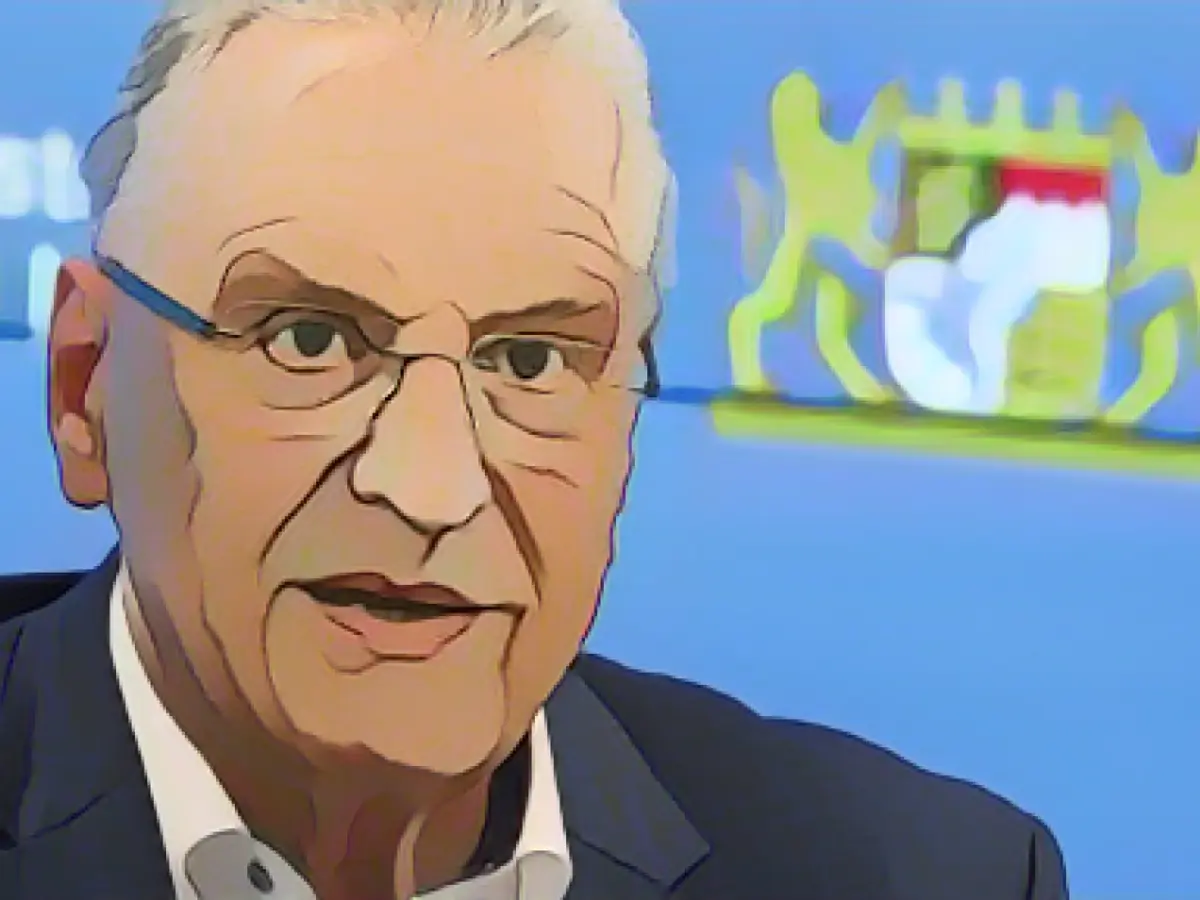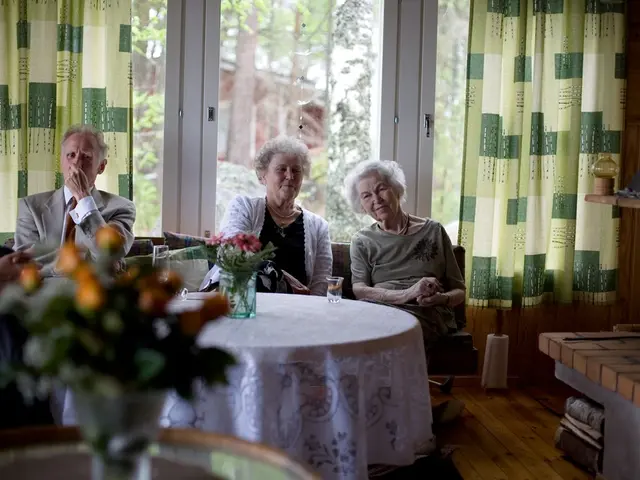Soder Slams Traffic Light Coalition's Electricity Tax Reduction as Inadequate
In a scathing critique, Christian Social Union (CSU) leader Markus Söder blasted the traffic light coalition's planned reduction in electricity tax as too little, too late. Söder, who serves as Bavaria's Minister-President, expressed disappointment during a CSU executive meeting in Munich, claiming that the move was a half-hearted attempt that didn't go far enough in addressing the long-running issues with electricity prices.
Businesses and industries in Germany have grappled with electricity price woes for months, according to Söder. He stated unequivocally that no feasible solutions had emerged during this period. The CDU/CSU has consistently advocated for lowering the electricity tax, a stance that remains unwavering. Large, energy-intensive sectors, such as the chemical industry, have argued that the proposed tax reduction is insufficient, suggesting that it merely reflects the current situation without preventing future, potentially even more substantial price hikes.
The German government's proposed strategy to drive down electricity costs for the manufacturing sector hinges on tax reform and an expansion of the preexisting compensation program for businesses vulnerable to high electricity costs. Planned changes include a significant reduction in electricity tax for the manufacturing sector in 2024 and 2025, as well as an expansion of the existing compensation scheme for companies grappling with high electricity prices. Chancellor Olaf Scholz (SPD) forecasted that this relief could amount to up to twelve billion euros in 2023 alone. Furthermore, the price cap would extend to the years 2026 to 2028, contingent on obtaining counter-financing from the federal budget.
Despite these measures, Söder contends that the federal government has committed a "fatal flaw" by failing to devise a strategy to minimize electricity prices through domestic electricity generation. Insufficient renewable energy resources, due to present limitations, will result in the continuation of high electricity prices, explained Söder. Renewable energy sources will not suffice to meet demands during the next five years in any meaningful way.
To tackle these challenges, alternative solutions beyond the traffic light coalition's proposed plan can be pursued:
- Make sizable investments in renewable energy infrastructure (e.g., wind and solar power), which can help curtail reliance on fossil fuels, thereby reducing electricity costs.
- Encourage energy-efficiency programs targeted at the manufacturing sector, promising incentives for companies to adopt greener technologies and practices.
- Modernize the electrical grid to a smart grid system, optimizing energy distribution and reducing losses while introducing real-time pricing mechanisms.
- Facilitate subsidies and tax incentives specifically for energy-intensive industries to support their adoption of sustainable practices.
- Encourage public-private partnerships to co-invest in energy infrastructure and efficiency projects, leveraging private sector expertise and funds while preserving public interests.
- Establish carbon pricing mechanisms, providing a financial incentive for industries to reduce their carbon footprint while funding renewable energy projects, energy-efficiency initiatives, and other cost-saving measures.
- Implement regulatory reforms to liberalize and deregulate the energy market, creating a more competitive landscape leading to lower prices.
By employing such a multifaceted approach, Söder's criticisms may find redress while maintaining alignment with broader policy objectives that strike the right balance between economic viability and environmental stewardship.
New insights woven in with original content included instead of an additional enrichment section








